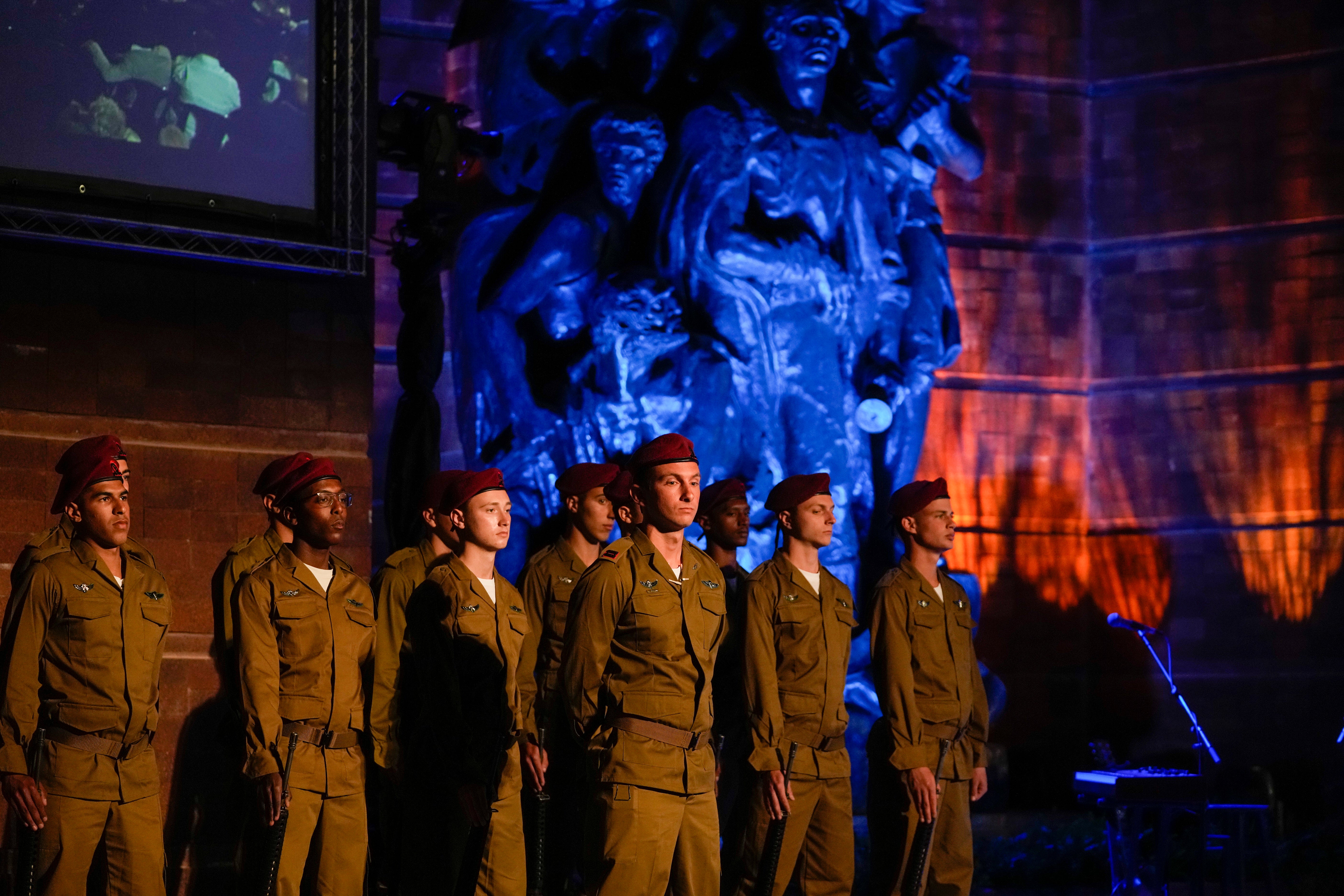Ushering in Holocaust day, Israeli PM warns of polarization
Israel's prime minister is warning Jews not to let internal divisions tear their society apart

Your support helps us to tell the story
From reproductive rights to climate change to Big Tech, The Independent is on the ground when the story is developing. Whether it's investigating the financials of Elon Musk's pro-Trump PAC or producing our latest documentary, 'The A Word', which shines a light on the American women fighting for reproductive rights, we know how important it is to parse out the facts from the messaging.
At such a critical moment in US history, we need reporters on the ground. Your donation allows us to keep sending journalists to speak to both sides of the story.
The Independent is trusted by Americans across the entire political spectrum. And unlike many other quality news outlets, we choose not to lock Americans out of our reporting and analysis with paywalls. We believe quality journalism should be available to everyone, paid for by those who can afford it.
Your support makes all the difference.Israeli Prime Minister Naftali Bennett delivered a stark message Wednesday as the country ushered in its annual Holocaust memorial day, warning Jews against letting internal divisions tear society apart.
Speaking at Yad Vashem, Israel's memorial to the 6 million Jews slaughtered by the Nazis and their collaborators, Bennett also called on the world to stop comparing the Holocaust to other events in history. He spoke after leaders in both Ukraine and Russia drew parallels between their ongoing war and the genocide during World War II.
“As the years go by, there is more and more discourse in the world that compares other difficult events to the Holocaust. But no,” he said. “No event in history, cruel as it may have been, is comparable to the extermination of Europe’s Jews by the Nazis and their collaborators."
Bennett's speech, coming on one of Israel's most solemn days of the year, came in a deeply personal context as well. On Tuesday, his family received a letter with a live bullet and a death threat. Israeli authorities tightened security around the premier and his family and were investigating.
“My brothers and sisters, we cannot, we simply cannot allow the same dangerous gene of factionalism dismantle Israel from within,” Bennett said.
Bennett did not explicitly refer to politics. But he leads a narrow coalition that recently lost its parliamentary majority. His government is made up of eight parties that have little in common beyond their shared animosity to former Prime Minister Benjamin Netanyahu, and Netanyahu, now the opposition leader, has worked hard to deepen divisions within the coalition.
Bennett's government was formed after four inconclusive elections, underscoring the fissures in society over key issues, including the conflict with the Palestinians and relations between religious and secular Jews.
Israel, founded in 1948 in the wake of the Nazi genocide, makes great effort to memorialize the victims of the Holocaust and make heroes of those who survived. Today, the country is home to a large but rapidly dwindling community of fewer than 165,000 aging survivors.
For them, challenges loom. This year's ceremony comes as Israel and much of the world emerges from the coronavirus pandemic, which confronted Holocaust survivors in particular with increased health risks as well as widespread loneliness and despair.
Additionally, about a third of Israel's Holocaust survivors live below the poverty line, with many sustained by government stipends and donations, according to a group that represents survivors.
Despite their experience and widespread education programs, antisemitism rose worldwide during the pandemic, according to a report released Wednesday.
It pinned the fuel for the anti-Jewish surge on lockdowns, social media and a backlash against Israel's punishing air raids on the Gaza Strip during last year's 11-day war.
In addition to speeches by Bennett, Israeli President Isaac Herzog and others, Wednesday's ceremony featured survivors lighting six torches — for the 6 million murdered by the Nazis and their collaborators. The speaker of German's parliament, Baerbel Bas, also attended as a special guest.
During the annual memorial, places of entertainment and restaurants close and TV stations either go dark or dedicate programming almost exclusively to Holocaust documentaries, interviews with survivors and melancholy music.
On Thursday morning, Israel will come to a standstill as sirens wail for two minutes. Pedestrians typically stop in their tracks, and cars and buses halt on the streets while drivers and passengers step out of their vehicles to stand with their heads bowed.
Other ceremonies include the public reading of names of Holocaust victims at Israel’s parliament and elsewhere around the country.